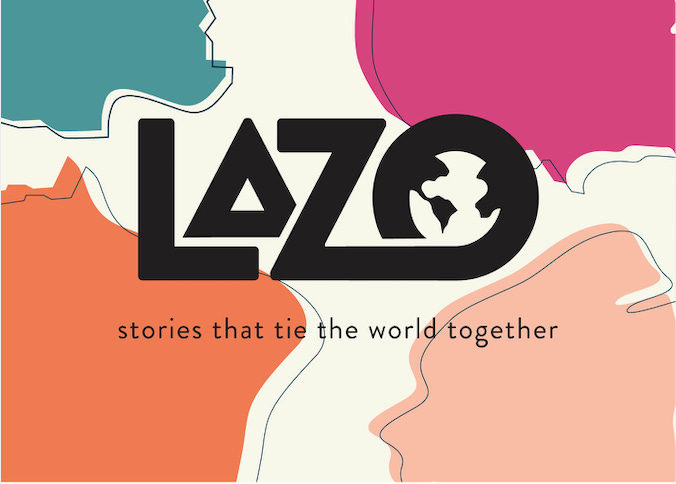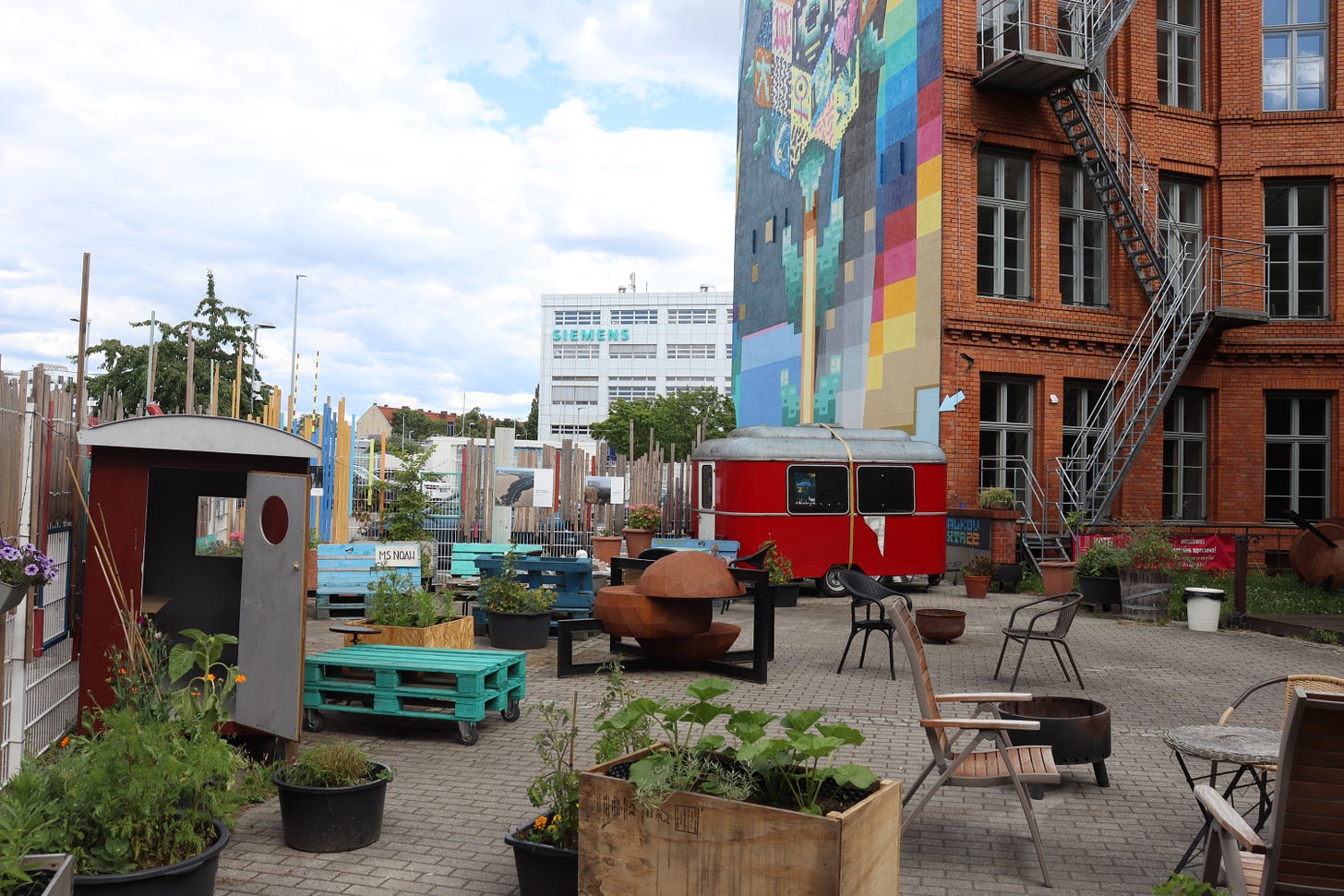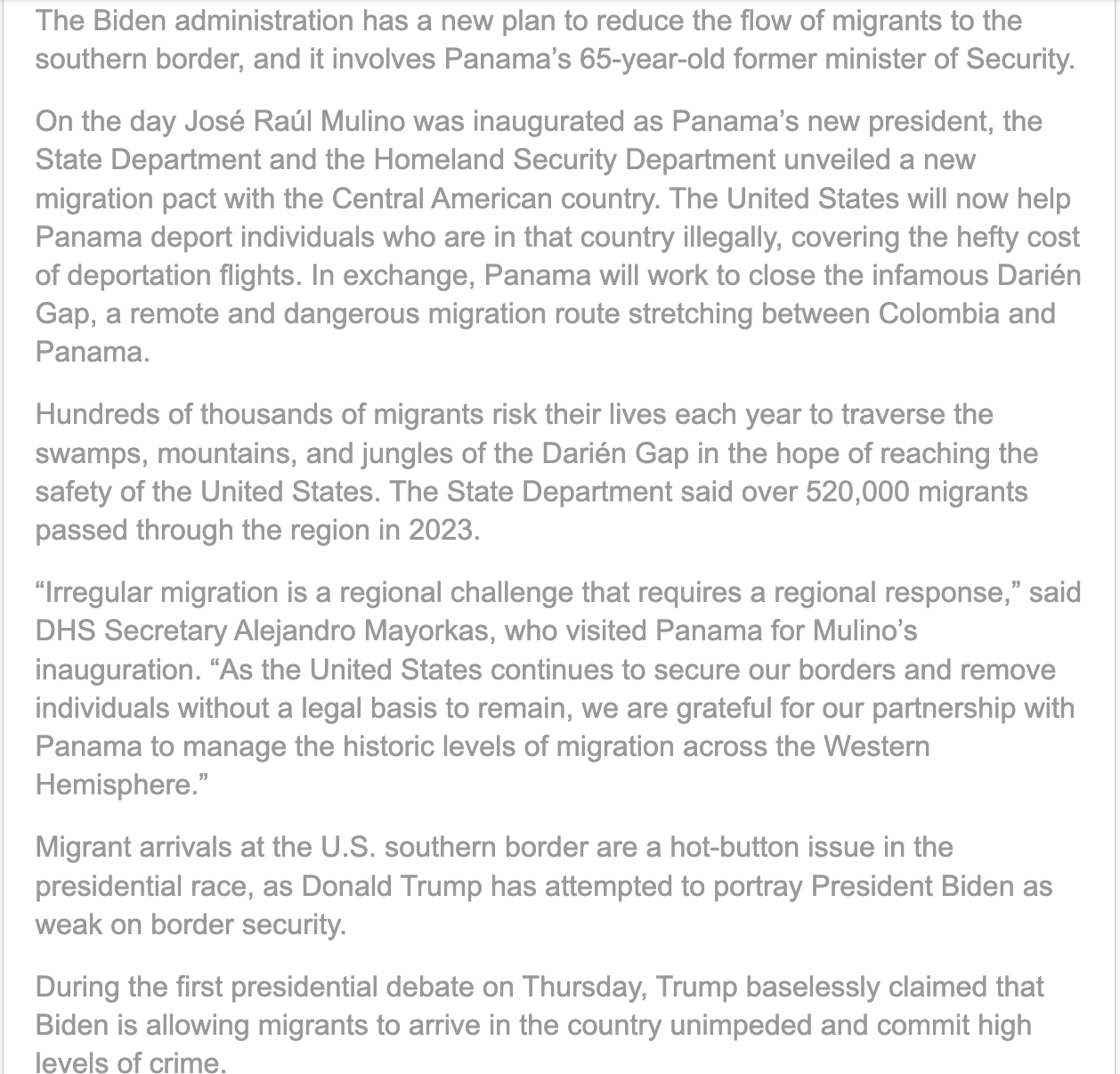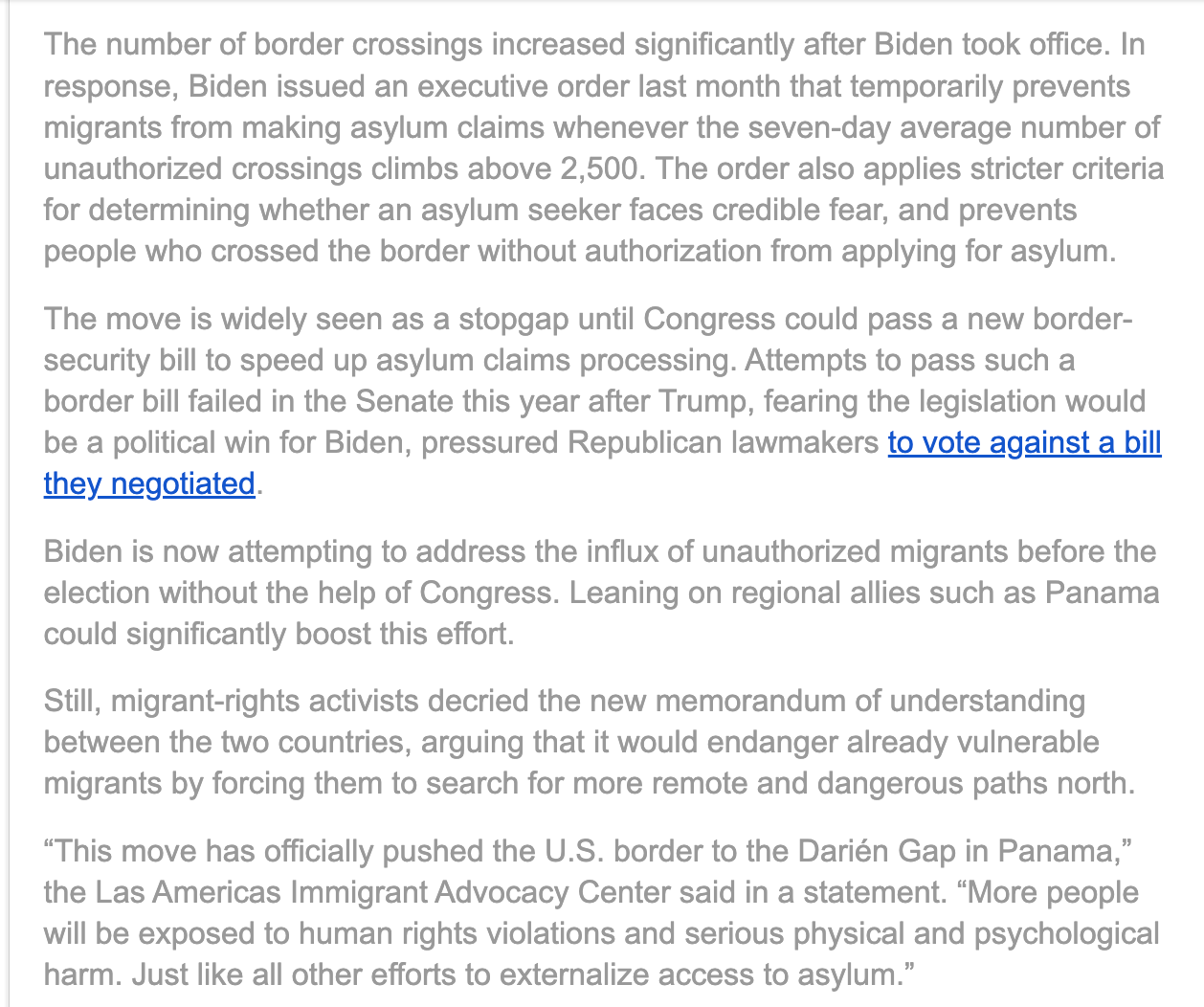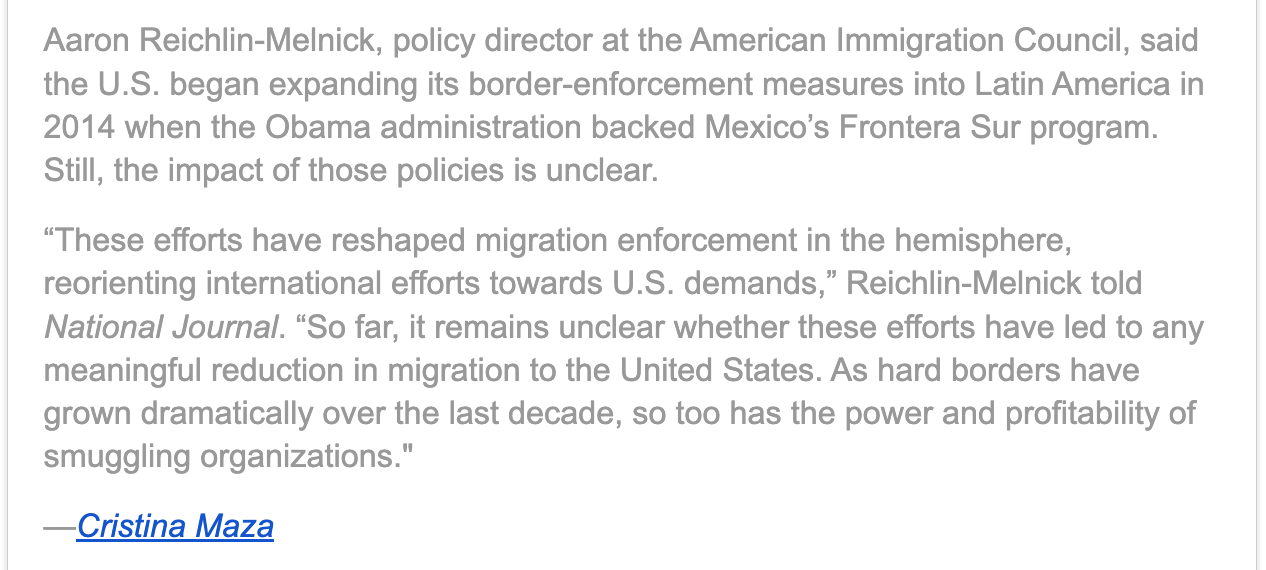I’m writing this after editing and publishing a story for Lazo Magazine that I’m truly excited about. Of course, I’m excited every time I get to publish something as part of this little project. But this story has everything that makes Lazo what I want it to be. It’s about young, creative people preserving their identities while making a new home in a foreign place. It’s about Ukraine and also Berlin. It’s about art. It’s about resistance. I love it. I hope you do, too.
Read about how Ukrainians in Berlin are working to preserve their cultural identities while exiled from their homeland.
Lazo Magazine is now on social media. You can follow along on Facebook, Twitter, LinkedIn, and Instagram. And if you can donate to Lazo Magazine or become a paid subscriber to this newsletter, that’s always appreciated.
What I’m writing:
• As election season ramps up in Washington, I wrote about all the foreign policy issues currently at stake. Biden and Trump differ in their approaches to Ukraine, NATO, Israel, Palestine, Saudi Arabia, Iran, China, Taiwan, and the U.S. Southern border. This story is unlocked and free to read.
• I spoke to Rihards Kols, who chaired the foreign affairs committee in Latvia’s parliament for the past six years. He was recently elected to the European Parliament. We discussed how to rid Western institutions of Russian influence and what Europe is doing to boost its defense capabilities. This interview is free to read.
My weekly news blurbs:
What I’m reading:
• The United Kingdom’s Labour Party won the general election in a historic landslide, ending the Conservative’s 14-year hold on power. Politico has the story. Former Labour leader Jeremy Corbyn was reelected as an independent MP.
• The DIAL reports on Europe’s states of sanctuary and the citizen movements and grassroots coalitions stepping in to build cross-border alliances and help migrants and asylum seekers.
• Ukraine’s security service said it foiled another Russian plot to topple the government and stir civil unrest, the New York Times reports.
• Russian troops took control of parts of Chasiv Yar, a key hilltop town in eastern Ukraine, CNN reports. The town is seen as a gateway to the parts of the Donetsk region that are still in Ukraine’s hands.
• Hungarian Prime Minister Viktor Orbán traveled to Ukraine for the first time since the war broke out and said a ceasefire between Russia and Ukraine could speed up negotiations to end the war. The BBC has the story.
• Russian President Vladimir Putin told Hungarian Prime Minister Viktor Orbán that Ukraine must effectively capitulate if it wants peace, the Moscow Times reports.
• Hungarian Prime Minister Viktor Orbán traveled to Moscow on Friday to meet Russian President Vladimir Putin, the BBC reports.
• Hungary’s government and its EU presidency, which began on Monday, did not officially inform EU and NATO allies about Prime Minister Viktor Orbán’s plans to meet with Russian President Vladimir Putin on Friday, VS Square reports.
• Russia’s glide bombs are striking their own territory, likely due to faulty guidance systems, the Washington Post reports.
• Russian authorities arrested top military colonel Artyom Gorodilov, who was the commander of troops responsible for the 2022 Bucha massacre in Ukraine, and charged him with large-scale fraud, the New York Times reports.
• Russia’s southernmost Dagestan province announced a temporary ban on the wearing of niqabs, a full-face veil with an opening for the eyes, as a security measure following last month’s deadly terror attacks on Jewish and Christian houses of worship, CNN reports.
• Belarus freed five political prisoners in a rare amnesty, almost four years after leader Alexander Lukashenko launched a crackdown on his domestic opponents, the BBC reports. Around 1,400 political prisoners are still being held in Belarus, according to human rights group Viasna.
• A bipartisan group of House lawmakers is urging U.S. President Biden to raise the alarm over Turkey’s “systematic human rights abuses” during an upcoming NATO Summit, the Hill reports.
• Montenegro undermined its EU membership bid with a vote condemning crimes committed by Croatian fascists during World War II, Prime Minister Milojko Spajić told Politico Europe. Croatia's hard-right nationalist government threatened to block Montenegro's EU integration after the Montenegrin parliament adopted the resolution condemning the Nazi-collaborationist Croat Ustaša regime.
• Vjesti has an explainer on how Croatia could stymie Montenegro’s EU accession process.
• Within the European Parliament, Hungarian Prime Minister Victor Orbán and his far-right Fidesz party are forming a new political alliance with Austria’s Freedom Party and the Czech Action of Dissatisfied Citizens Movement, Politico Europe reports.
• France’s far-right National Rally won the first round of the snap parliamentary elections with 33 percent of the vote, the Wall Street Journal reports. The leftwing New Popular Front alliance came in second, securing 28 percent, while President Emmanuel Macron’s centrist Together coalition reached 20 percent.
• The chances of an outright victory for the far-right in the dramatic French election fell as centrist and left-wing candidates reluctantly banded together to back those remaining contenders with the best chance of beating Marine Le Pen’s nationalists, Politico Europe reports.
• A new right-wing government was installed in the Netherlands nearly a year after the previous administration resigned, Reuters reports. Far-right anti-Islam leader Geert Wilders, the winner of last year’s general election, will not be part of the government himself, but he has selected hardliners from his party to represent him in the cabinet, meaning his shadow will loom large.
• The leader of Germany’s far-right AfD party, Björn Höcke, was convicted for using a Nazi slogan for a second time, Politico Europe reports.
• Italy’s Prime Minister Giorgia Meloni urged leaders of her political party to reject antisemitism, racism, and nostalgia for totalitarian regimes after a news report used a hidden camera to show members of her party’s youth wing glorifying fascism, the New York Times reports.
• Spain's Supreme Court refused to grant amnesty to the Catalonia region’s former leader, Carles Puigdemont, in a ruling threatening Spanish Prime Minister Pedro Sánchez’s fragile governing majority, Voice of America reports.
• Qatar and Egypt delivered Hamas’s updated response to Israel’s proposal for a hostage and ceasefire deal, Axios reports. Two Israeli officials said Hamas’s updated response was constructive and paved the way for more detailed negotiations that could result in a deal.
• Israel seized more land this year than in the past 30 years, according to Peace Now, the Israeli watchdog organization that tracks settlement growth. Nearly half of all West Bank land seized by Israel since the 1993 Oslo Accords was taken this year. The Wall Street Journal has the write-up.
• Iran held a run-off election on July 5 after hardline candidate Saeed Jalili and rival reformist Massoud Pezeshkian both failed to secure a majority in the presidential race, the BBC reports.
• Fighters from Sudan’s paramilitary Rapid Support Forces attacked the agricultural state of Sennar, opening up a new front in the war, the Wall Street Journal reports.
• Brazil’s police indicted former President Jair Bolsonaro for money laundering and criminal association relating to undeclared diamonds he received from Saudi Arabia while in office, ABC News reports.
• Senior members of Jemaah Islamiyah, the Southeast Asian militant network blamed for deadly Bali bombings, announced they are disbanding the group, CNN reports.
You can write to me for any reason: c.maza@protonmail.com





